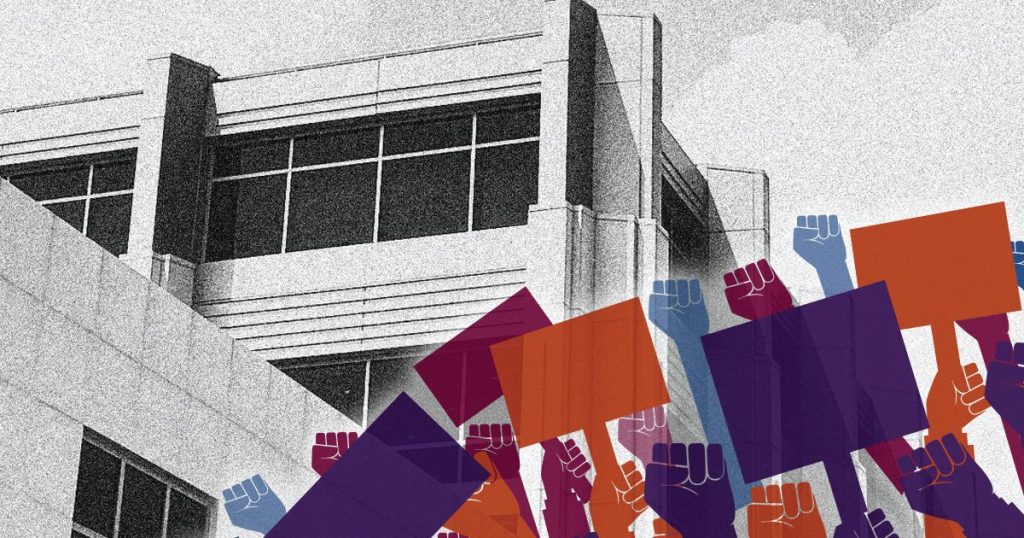More than 2,000 mental health workers at Kaiser Permanente sites in Northern California plan to begin an open-ended strike Monday over staffing levels and patient access.
The psychologists, therapists, chemical dependency counselors and social workers represented by the National Union of Healthcare Workers say the not-for-profit integrated health system is failing to meet parity laws to ensure patients receive mental healthcare in a timely manner and want Kaiser to agree to increase staffing levels and allow workers more time for patient care.
Workers have been in negotiations with Oakland-based Kaiser since July 2021. The contract expired in September.
In a statement, Deb Catsavas, senior vice president of human resources at Kaiser, said the organization is “committed to bargaining in good faith” and called the union’s decision to strike “unethical.”
“It is especially disappointing that NUHW is asking our dedicated and compassionate employees to walk away from their patients when they need us most,” Catsavas said.
She said Kaiser has contingency plans in place in the event of a strike. Some non-striking mental health clinicians will continue to provide care, and the system will expand its network of providers in the community, she said. While urgent and emergency care will not be interrupted, some nonurgent appointments may be rescheduled, she said.
Ilana Marcucci-Morris, a clinical intake therapist in Oakland and a member of the union’s bargaining committee, said “a strike is a last resort” for the union. But the lack of staff to serve patients is making it difficult for clinicians to treat patients the way they deserve, she said.
“I have to do the painful and demoralizing thing and tell a severely mentally ill person that they need care, they need treatment, but I can’t give it to them until three months from then,” Marcucci-Morris said. “Most of these people are in their version of a crisis.”
The union says the delays in scheduling mental healthcare appointments for patients put Kaiser in violation of California state requiring, among other things, that patients receive an initial intake appointment within 10 days and a follow-up appointment 10 days after intake.
“It’s up to the government to enforce these laws,” said Sal Rosselli, union president.
A spokesperson for the California Department of Managed Healthcare said in a statement that the agency “is taking complaints that the plan is not providing timely access to behavioral healthcare services very seriously.”
During an oversight hearing by the state Senate’s Select Committee on Mental Health and Addiction Wednesday, department director Mary Watanabe said the agency notified Kaiser in May that it was conducting “a non-routine survey” of its behavioral care services due to a 20% increase in complaints from Kaiser members from 2020 to 2021.
The health system was fined $4 million in 2013 by the state over the waiting period for mental health appointments.
